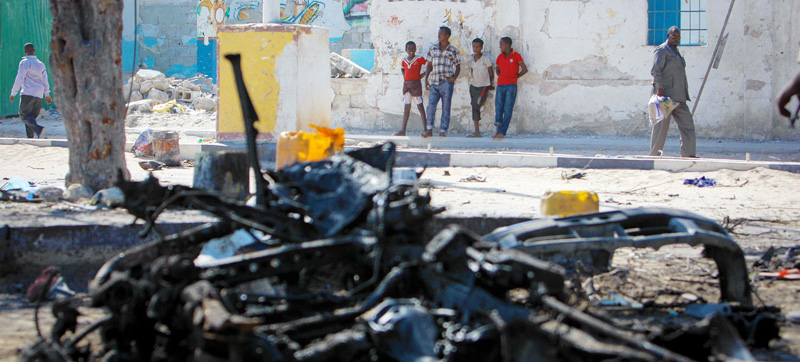 Violent Extremism
Violent Extremism
New global hub to study factors driving radicalization and violent extremism
New York: A new UN office in Doha will advance research into the factors that drive violent extremism and terrorism, the Organization’s counter-terrorism chief Vladimir Voronkov said on Monday during the soft launch held online.
The International Hub on Behavioural Insights to Counter Terrorism will use cognitive psychology, behavioural economics and social sciences to improve understanding about these ongoing threats to global peace and security.
“It will help us understand why and how people become radicalized to violence and where we can intervene most effectively to halt the radicalization process,” said Mr. Voronkov, head of the UN Office of Counter-Terrorism (UNOCT), speaking from New York.
“Applying a behavioural lens to counter-terrorism, the Hub will enable us to identify risk and resilience factors and develop empirically validated interventions for policymakers and practitioners.”
Assistance to countries, organizations and civil society
The International Hub was established through an agreement signed in September with the State of Qatar, and is the first UNOCT Programme Office in the Gulf region.
“It will enable us to work more closely with our beneficiaries in the field, to have a better understanding of national and regional needs, and to strengthen the sustainability of our technical and capacity-building assistance”, said Mr. Voronkov.
Beyond conducting and advancing research, the hub will assist countries, regional organizations and civil society partners with developing and implementing programmes and initiatives, in addition to promoting partnerships to share expertise, knowledge, and lessons learned.
The Deputy Prime Minister and Foreign Minister of Qatar, Sheikh Mohammed bin Abdulrahman Al-Thani, said his country's keenness to host the International Hub stems from its unequivocal policy based on the values, culture, and teachings of the real Islam, which reject terrorism, and also the belief that combating "this abhorrent phenomenon" can only be achieved through a holistic and comprehensive approach that addresses its root causes.
Complex factors drive violent extremism
Muhammad Rafiuddin Shah, Chief of UNOCT’s Policy, Knowledge Management and Coordination Branch, said use of behavioural insights has become commonplace in areas such as consumer and environmental protection, health and safety, education, and marketing.
During the COVID-19 pandemic, they have helped in forging the connection between handwashing and saving lives. However, their use in counter-terrorism is relatively new.
“In life, people often need a little bit of help, or a nudge, to distinguish between right and wrong choices when they are dealing with complex issues. Terrorism and violent extremism are outcomes of the complex interplay between lopsided ideas and individuals’ inward-looking situational analysis and responses”, he said.
Leveraging insights
Field research conducted by UNOCT and by the UN Development Programme (UNDP) involving foreign terrorist fighters, has revealed that there is no single pathway to terrorism.
Mr. Shah reported that a mapping exercise carried out recently by UNOCT and partners points to the need to further explore and leverage potential behavioural insights for prevention.
“We are keen to see how this research could be harnessed, for instance in strategic communications in leveraging sports and its value for preventing and countering violent extremism, in efforts to raise awareness, empower community and peer-to-peer responses, and in designing redirect intervention programmes, online and offline, to steer away susceptible individuals from violent extremism”, he said.
Support Our Journalism
We cannot do without you.. your contribution supports unbiased journalism
IBNS is not driven by any ism- not wokeism, not racism, not skewed secularism, not hyper right-wing or left liberal ideals, nor by any hardline religious beliefs or hyper nationalism. We want to serve you good old objective news, as they are. We do not judge or preach. We let people decide for themselves. We only try to present factual and well-sourced news.







